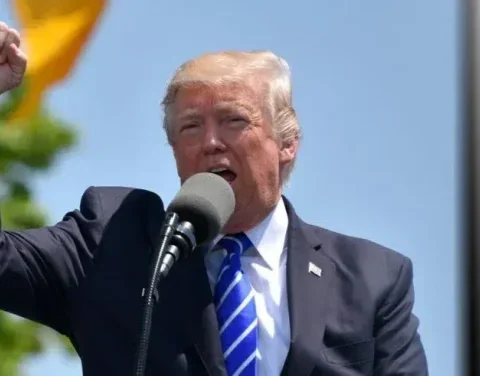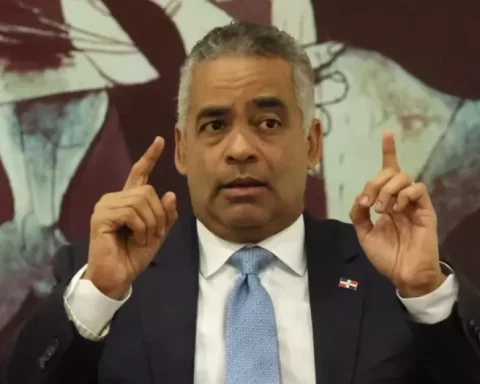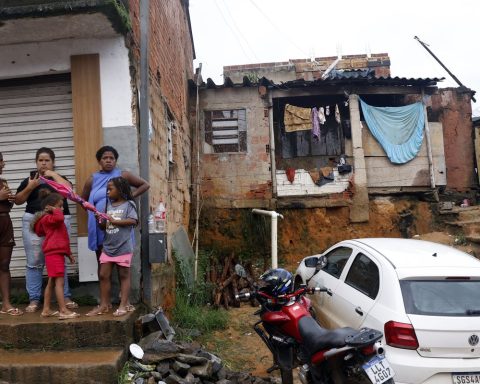The Organization of the Petroleum Exporting Countries (OPEC) and its allies reported this Sunday, June 4, that they agreed to extend, for one more year –until the end of 2024–, the current cuts in their pumping; They also reached a commitment on the internal distribution of the production quota: the group’s total offer will remain at 40.46 million barrels per day (mbd), the measure will enter into force on January 1, 2024
The oil and energy ministers of the OPEC+ alliance (OPEC and allies), agreed this Sunday, June 4, at the 49th meeting of the Joint Monitoring Ministerial Committee and at the 35th OPEC+ Ministerial Meeting, to extend for one more year , until the end of 2024, the current cuts in its pumping.
The appointment was held in Austria, Vienna.
In addition, they reached a compromise on the internal distribution of the production quota as of January 1, 2024, which will leave the group’s total supply at 40.46 million barrels per day (mbd)according to the final declaration of the ministerial meeting held this Sunday.
In this way, both the 2 mbd cut adopted in October 2022, as well as a large part of the voluntary reductions announced in April, for a total of 1.66 mbd, remain in force, which until now have not had the desired effect of raising the crude oil price to more than 80 dollars/barrel.
*Read also: OPEC+ will reduce crude oil production by 1.66 million barrels per day from May
Venezuela supports the OPEC measure
The new Minister of Oil and President of Petróleos de Venezuela (PDVSA), Pedro Rafael Tellechea, reported through his social networks that the government of Nicolás Maduro supports the measure; just as last April he ratified the agreement of reduce by 1.16 million barrels daily (b/d) the pumping of crude oil.
We finished these days of meetings @OPECSecretariat and OPEC+ reiterating Venezuela’s commitment under the leadership of Pdte. @NicolasMaduro to continue supporting the measures that seek the stability of the energy market among producing nations@delcyrodriguezv pic.twitter.com/Xnkyy97jUF
– Rafael Tellechea (@TellecheaRuiz) June 4, 2023
Also, as part of the Venezuelan delegation, Ángel González, governor before OPEC, and Ronny Romero, national representative before this multilateral instance, attended the meeting.
OPEC, Organization of the Petroleum Exporting Countries (OPEC, Organization of the Petroleum Exporting Countries), was founded in 1960, and was recognized by the UN in 1962. Venezuela is one of the founding countries. OPEC+ is made up of OPEC members, to which other producers are added: Azerbaijan, Bahrain, Brunei, Kazakhstan, Malaysia, Mexico, Oman, Russia, Sudan and South Sudan.
Saudi Arabia will reduce its pumping
As of July 1, Saudi Arabia will reduce its crude supply by one million barrels per day (mbd), a “voluntary” cut that it will implement in addition to continuing to comply with the pumping limitations to which it has committed in OPEC+ .
This was announced by the Saudi Minister of Energy, Abdelaziz bin Salman, at a press conference in Vienna, after participating in an OPEC+ conference.
“A cut of one million barrels per day from (next) July, which can be extended,” said the delegate from the Wahhabi kingdom.
At the meeting of the so-called OPEC+ alliance (OPEC and allies) it was agreed to extend for one more year, until the end of 2024, the current cuts in the joint pumping of the group of 23 countries, which were adopted in two phases, one in October and another in April, and were going to expire on December 31.
*Read also: OPEC: Oil production in Venezuela rose 5% during the first quarter of 2023
However, these measures did not have the desired effect of raising the price of crude oil to more than 80 dollars/barrel.
The aforementioned additional and “voluntary” cut by Saudi Arabia thus constitutes the third attempt in six months to make “black gold” more expensive by withdrawing barrels from the market.
OPEC and the internal distribution of the production quota
On the other hand, the ministers said that they have reached a compromise on the internal distribution of the production quota as of January 1, 2024, which after a slight adjustment will leave the total supply at 40.46 million barrels per day (mbd). of the group, according to the final declaration of the ministerial meeting held this Sunday.
The barrel of Brent oil ended on Friday at 76.08 dollars and that of Texas intermediate oil (WTI) was at 71.74 dollars, prices that are very far from those above 100 dollars/barrel that were a year ago.
The next ministerial conference of the Organization of the Petroleum Exporting Countries (OPEC) and its ten allies, led by Russia, has been convened for next November 26.
Venezuelan production
In the first quarter of 2023, Venezuelan production closed with an average of 731,000 barrels of oil per day (b/d), which represented An increment 5.48% compared to the last quarter of 2022, when 692,000 b/d were reported.
Venezuela, which, according to official projections, would close last year with a production of more than two million barrels per day, pumped an average of 716,000 b/d in 2022, which represented an increase of 12.5% compared to 2021. when it averaged 636,000 b/d.
With information from EFE
Post Views: 557












